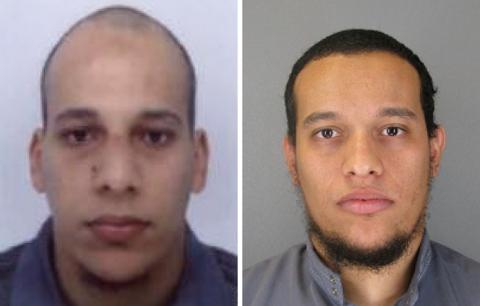Al-Qaeda in Yemen urges jihad


AL-QAEDA in the Arabian Peninsula, suspected of having ties to the attackers in Paris, has been the most active of the terror network's branches in trying to strike in the West.
THE group said on Friday that it had directed the attack on the French satirical magazine Charlie Hebdo. If so, it would be the Yemen-based branch's first successful strike outside its home territory.
That would be a triumph for its trademark double-strategy: Waging jihad in Yemen to build its strength to strike abroad.
The group, formed in 2009 as a merger between the terror group's Yemeni and Saudi branches, has been blamed for a string of unsuccessful bomb plots against American targets.
These include a foiled plan to down a Detroit-bound airliner in 2009 using a new type of explosive hidden in the bomber's underwear, and another attempt a year later to send mail bombs hidden in toner cartridges on planes bound to the US from the Gulf.
The group's lead bomb maker, Ibrahim al-Asiri, is believed to have created the explosives used in both foiled plots.
Bill Roggio, editor of the Long War Journal, which chronicles militant activities, said Yemen's branch of al-Qaeda has managed to seize territory inside Yemen, provide training and support for extremist groups operating in Syria, Iraq and other regions, and promote "lone wolf" attacks in the West.
The group's leader, Nasser al-Wahishi, spent years as Osama bin Laden's personal assistant before returning to his native Yemen. His close ties to bin Laden gave him influence within the group's various branches and led to him assuming leadership of the core group after bin Laden's death.
His focus on networking with other militant groups in Africa, Iraq and Syria gave the Yemen branch particular prominence in the network. The group is believed to have sent the largest contingent of al-Qaeda fighters to Iraq in 2009, Roggio said.
The group was the first to use English publications to reach out to supporters in the West, with the launch in 2010 of its English-language magazine, Inspire. It featured commentary by a radical US-born cleric, Anwar al-Awlaki, who was killed in a US drone strike in Yemen in 2011, but whose words are still influential in cyberspace.
The group has threatened Charlie Hebdo and other cartoonists who have satirised the Prophet Muhammad. Charlie Hebdo editor Stephane Charbonnier, one of the 12 people slain in Wednesday's attack on the magazine, was on a hit list published in a 2013 edition of Inspire.
On Friday, the group said it directed the attack on the French weekly "as revenge for the honour" of Islam's Prophet Mohammad.
The latest edition of Inspire, in December 2014, stressed the group's commitment to supporting lone wolf militants and small groups in attacks targeting their home countries. No expertise is needed to prepare attacks against Western targets, it said, urging strikes in "America, if not possible then the UK, if not, then in France."
It's suspected that Said Kouachi, one of the brothers involved in the deadly Paris attack, fought for al-Qaeda in Yemen at the height of the group's offensive in the country's south, a Yemeni security official said on Friday.
The group is surging in strength, finding new support and recruits among Sunni tribesmen, in a backlash to US drone strikes and the rise to power of Shi'ite rebels who have taken over the capital and other parts of the country since September.
The militant group's ultimate goal, like the Islamic State, is a global caliphate, Roggio says.
AAP

Yemeni officials on Monday condemned arrests and prosecutions by the Iran-backed Houthi militia directed against media, journalists and celebrities…

Yemen's warring parties are gearing up for new waves of conflict in 2023 amid a lack of decisive steps towards sustainable peace, adding to the suf…

The UAE will help to recruit doctors and deliver crucial supplies for hospitals in Yemen under a major healthcare drive. The Khalifa bin…